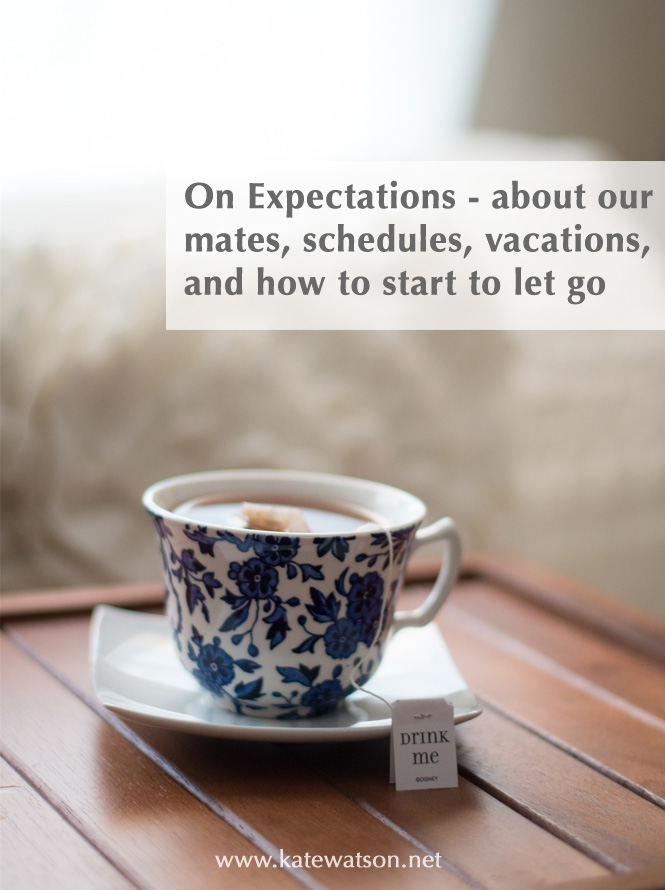 I had an interesting experience during our flight to Hawaii. Let’s call it an exercise in extreme gratitude. I had an interesting experience during our flight to Hawaii. Let’s call it an exercise in extreme gratitude.
Interesting isn’t my preferred descriptor for air travel—I prefer uneventful—but I’ve found that Trans-Pacific flights have a tendency toward the former. There we were, rocking and rolling like we were riding the Soviet-era rails in Eastern Europe, but at 32,000 feet. For two hours.
Truth be told, I wasn’t even counting. I’d estimated the turbulence to have lasted at least an hour when I turned to Mr. Watson and he replied, “More like two.” Since he’s the engineer, I defaulted to his calculations.
“Can’t the pilot find another altitude?,” I asked.
“I don’t know,” he said, “It’s different over the open ocean. I’m not sure who he’d call to request that.” Since my better half is also a private pilot, I had to defer to him there as well.
Our fellow passengers were surprisingly calm. We’ve been on prior Trans-Pacific flights where people pray, panic, and exclaim during the turbulence. This time, it was my turn.
I was already feeling nauseated—getting up at 4am after only a couple of hours of sleep tends to leave me that way—and the bouncing and pitching was threatening the sanctity of my breakfast. The sanctity of it remaining breakfast, anyway.
As I returned attention to my audio book, Oprah Winfrey’s What I Know For Sure, she began speaking about gratitude. The chapter starts with a quote from Meister Eckhart, “If the only prayer you ever say in your entire life is ‘Thank You,’ it will be enough.” It’s one I’ve long admired.

Oprah explains: “Being grateful all the time isn’t easy but it’s when you feel least thankful that you are most in need of what gratitude can give you.
“Perspective: Gratitude can transform any situation. It alters your vibration, moving you from negative energy to positive. It is the quickest, easiest, most powerful way to effect change in your life. This I know for sure.
“Here’s the gift of gratitude: In order to feel it, your ego has to take a backseat. What shows up in its place is greater compassion and understanding. Instead of being frustrated, you choose appreciation. And the more grateful you become, the more you have to be grateful for.
“Maya Angelou was so right [when she taught Oprah this]. Whatever you’re going through, you will do just that: Go through it. It will pass, so say ‘thank you’ now because you know the rainbow is coming.”
I did as she suggested. I leaned back, closed my eyes, and breathed deeply and deliberately, in and out, repeating “thank you” in my head, a silent mantra while I continued to listen to Oprah’s soothing alto move on to stories of dieting and self-acceptance. I don’t know how long I breathed, focusing on my gratitude, but eventually I fell asleep.
When I awakened, we were through the turbulence and my nausea had passed. The metaphorical rainbow had appeared.
Of course, Oprah’s next chapter detailed her own travails with Trans-Pacific travel, but I’ll let you read the book for that one. Suffice to say that her gratitude lesson was perfectly apropos.
When was the last time you practiced gratitude? Has it ever helped you through an urgent time?
Cheers,

 The theme for June was supposed to be self-exploration, but what keeps popping up for me instead is expectations. I’ve written about letting go of others’ expectations and when you can’t meet your own big expectations, but what about the tiny, everyday expectations we bring to our experiences and interactions? Let me give you an example. The theme for June was supposed to be self-exploration, but what keeps popping up for me instead is expectations. I’ve written about letting go of others’ expectations and when you can’t meet your own big expectations, but what about the tiny, everyday expectations we bring to our experiences and interactions? Let me give you an example.
On our first morning in Hawaii, I awakened at the crack of dawn. We didn’t have much to eat on hand and I was ravenous for a hot breakfast. I researched the options and was anxiously waiting for Brian to awaken so we could head to a local place with cheap prices and huge servings. But Brian kept on sleeping past 7am, 8am, 9am, even 10am. My inner monologue was very opinionated on the subject:
We’re on vacation. We should be out having fun, trying new things, eating out. Is he going to sleep in like this every day? We have a lot to do in preparation for our anniversary on Thursday; when are we going to get it done?
Clearly I had a lot of expectations about vacation, our schedule, and what Brian should be doing. We all have these kinds of thoughts, don’t we? Expectations about our mate and his/her actions, our jobs, our interpersonal experiences, how our day will pan out.
The problem with all of these is in the judgment, which became clear when I wrote “we should…” and then “Brian should…” Should is a bad word in my world. I’ve written about how I address shoulding myself and how I try not to should upon others. But I’m not perfect. And because Brian is the closest person to me, I often formulate expectations about his behavior regardless of whether they’re necessary or helpful.
Eventually I remembered: It’s vacation! It doesn’t have to be anything. Our agreed-upon goals for vacation were to celebrate our 10th anniversary and to relax, not to race around the Big Island seeing and doing everything or eating at every new place imaginable. So we were already meeting our expectations.
And even if we weren’t, what was the point of stressing out about what I could be doing instead of appreciating the moment I was already experiencing? I let go of the idea of hitting Hawaii Style Cafe and grabbed a granola bar instead.
As my hunger demon satiated, I realized that before me was a beautiful, 180-degree view from the telescopes on Mauna Kea to the white caps of the Pacific. The morning was sunny and clear, transitioning from the cool of dawn to the warmth of midday, birds were singing, nature was humming, everything was perfect in that moment. I grew accepting that the day would unfold as it would. And this month of June will unfold as it will, too, regardless of what my editorial calendar may say.
For more about expectations, head over to Shirin Shoai’s story of an unexpected Sunday at Stern Grove or Danielle Laporte’s take on the value and panic-inducing difficulty of letting go. Or for a deeper dive, check out Phillip Moffitt’s post, The Tyranny of Expectations.
I hope you enjoyed this post. If you did, please like it, share it, or let me know.
Cheers,


Anyone who’s gotten engaged has heard of the 4Cs of diamonds: cut, carat, clarity, and color. However, I think there are 4Cs far more important to know around that time, the 4Cs of marriage: chemistry, compatibility, commitment, and communication.
While the 4Cs of diamonds present potential areas for trade off (a larger stone of lesser quality, for example, versus a smaller, flawless stone), I contend that all of the 4Cs of marriage are essential. Let’s talk them through:
Chemistry
I think of chemistry as both that snap of physical attraction you might feel instantly upon meeting someone as well as a subtler emotional and intellectual chemistry that may take some time to uncover.
I know that some people would disagree with me and say chemistry is all physical but, when you’ve been married more than a couple of years or are over the age of 25, you come to realize that physical attraction isn’t everything. Sure, sex is important—without it, you’re basically roommates—but having someone who “gets” you is just as, if not more, important.
My husband and I have always said that we didn’t experience a huge physical spark when we first met. But something in me recognized him as important. When I tried to break up with him a month or so later, I felt an unreasonable sense of loss and started crying instead.
Brian and I liked each other, respected each other, and came to understand each other. We were stimulated by each other’s personalities and intellects and, in our case, the physical attraction grew from there. Regardless of what your chemistry looks like or from where it comes, I consider it the first essential ingredient of the 4Cs of marriage.
Compatibility
The second of my 4Cs of marriage is compatibility. A lot of folks seem to use the word compatibility to define the emotional and intellectual chemistry between people. Instead, I define it as a commonality of life goals and interests.
You could have all of the physical, emotional, or intellectual chemistry in the world but, if your mate wants a dozen kids and you don’t want any, you have a compatibility problem.
If you want to live and work in Antarctica and your mate never wants to be more than 10 miles from his family in Michigan, you’ve got some compatibility conversations ahead.
If you and your partner share no common interests, your relationship might survive, but at what cost? Loneliness when one partner is left at home? Jealousy that the other is out with friends? You don’t have to agree on everything or spend all of your time together, but it helps if each partner is willing to compromise and find a shared interest or two.
We all compromise in relationships so the real question is how compatible are you and your mate on the deal breakers? And what are those deal breakers? It’s critical to have conversations like these before getting married to ensure long-term happiness and harmony.
Commitment
By its very nature, marriage equals commitment. Marriage is a legal union recognized across the globe, regardless of culture, creed, or religion. In fact, according to Dictionary.com, “anthropologists say that some type of marriage has been found in every known human society since ancient times.”
By listing commitment as one of the 4Cs of marriage, I’m not making a judgment call about whether humans are innately monogamous or polyamorous but whether you are willing to invest in your relationship and partner(s).
Dictionary.com defines commitment as a promise, which correlates well to your vows of marriage. Depending on your beliefs and relationship style, your pledge could be to uphold and support your partner and relationship, to remain faithful, or something else entirely.
Whatever your personal understanding of commitment, this is another issue best considered and discussed with your partner(s) before marriage. Your decisions and answers will be important for as long as your relationship lasts.
Communication
As you may have already noticed, communication keeps popping up among the 4Cs of marriage and thus must be #4.
Before Brian and I got married, my mom told me that king-size beds were relationship killers. I disagree: Poor communication is. After 10 years of marriage, I can safely say: If you can’t communicate effectively with your spouse, you’ll never make it. Marriage involves too many discussions, decisions, and compromises for partners with poor communication skills to survive.
If you’re now wondering about the health of your communication skills, this list of 10 characteristics of effective communicators is a good place to start. It’s more geared to professional interactions, but the fundamentals are there: making your message clear, practicing empathy and effective listening, asking for clarification when needed, and paying attention to body language.
Communication is ongoing work, for sure. After years together, a change in circumstances—a move, a new baby, or a new job—can change how and how much time you have to communicate with each other, as it did for us. Here are some of the things we did to improve our communication when that time came.
I hope these 4Cs of marriage prove helpful to you in determining how strong your relationship is and the areas you can continue to improve and develop over time. If you liked this post, please share the love.
Thanks,

 We all know that this isn’t the way to fight in a relationship, but what is? Keep reading… On our walk the other morning, Brian and I got into a disagreement. It started when I expressed concern about an ongoing health issue—making a bid for emotional support—and Brian replied that he didn’t think my assessment of the situation was accurate, that I should consider another course of action. In other words, he attempted to solve the “problem.”
This seems to be a common interaction between the sexes. John Gray, author of Men Are from Mars, Women Are from Venus, writes, “Just as a man is fulfilled through working out the intricate details of solving a problem, a woman is fulfilled through talking about the details of her problems.”
I wouldn’t characterize it the way Gray does—that I was talking about the details of my problems—but I agree that men often hear problems to solve where women are asking for support. My husband, the exceedingly rational engineer, is no exception.
Although we’re about to celebrate our 10th anniversary, our relationship is by no means devoid of conflict. Every couple has disagreements. When we have ours, we do what we can to keep the discussion amicable, to make sure we’re fighting fair. Here’s how:
10 Rules for Fighting Fair
- Be honest. We share what’s really on our minds instead of hiding behind another issue. For example, if I’m frustrated that he’s late, I don’t pick a fight over the dishwasher needing to be emptied. Of course, we might not always fully understand what is bothering us and so we do the best we can. (Ask me sometime about how Brian used to make animal noises while I cooked.)
- Keep it personal. By mutual agreement, we don’t blame each other. We keep the focus on our individual thoughts and feelings. For example, I might say, “I feel unheard” versus “You never listen to me!”
- Keep it private. If there’s anything I’ve learned about fighting fair, it’s this: Don’t involve others, either during or after the disagreement. Take it to another room if you have kids or company and don’t call your parents or friends to debrief afterward. (Note: I made the latter mistake in my early 20s. My mom never respected that boyfriend again, even though I stayed with him for years.)
- Stick to the present. Although a disagreement may relate to prior events, there’s no point in continually bringing up the past. If you didn’t resolve the issue the first time you discussed it, work harder to resolve it. If you keep rehashing (or holding a grudge about) the same issues, you’ll never be able to move forward.
- Stick to the subject. When Brian and I disagree, we talk about the one issue at hand. We don’t bring up everything else we could possibly disagree about at any past or future moment in time. Resolutions are best found in specifics. When everything is wrong, nothing can be resolved.
- No name calling. This seems obvious, but name calling serves no purpose. It’s demeaning and hurtful, and avoiding it requires only a tiny bit of self control. Just don’t do it.
- Listen. You can’t understand what your partner is saying if you don’t listen. So listen, don’t just pause until it’s your turn to speak again. I know this can be difficult because you want to make sure you’re heard but it’s equally important to hear.
Brian and I recently began practicing active listening, which involves paraphrasing and repeating back what you heard to demonstrate understanding. Active listening can really slow down a conversation but it can also help point out areas of miscommunication.
- Seek a resolution. Arguing in a relationship should be about finding agreement, not about keeping score or “winning.” In fact, I believe that, if anyone wins an argument in a marriage, both sides lose. Instead, accept when your partner is extending an olive branch and seek a resolution you can both live with.
- Take a pause. Sometimes it’s necessary to take a pause and ask, “Can we talk about this later?” If you and your partner have reached an impasse or you’re tired or hungry or need a break, take one. And let your partner have one if they ask. Doing so can provide each of you with the time and space to see the other’s side or find a better resolution.
- Take responsibility and move on. Whenever we reach a resolution, Brian and I end up apologizing for our part in the disagreement. This isn’t a rule for us—it just works out that way—but I think it helps if you can see how you contributed to the disagreement and take responsibility for your role. Doing so helps you put the issue to bed and move forward, back on the same page.
As you’ve no doubt seen by now, most of fighting fair stems from being kind (#4 on my list of marriage lessons) and practicing empathy for your partner even when you’re angry or annoyed. For more tips on fighting fair, check out the following from:
If you found this post enjoyable or helpful, please share the love.
Cheers,

Last week, I shared five love lessons I’d learned by my fifth wedding anniversary. Today I’m back with five more marriage lessons, from the perspective of (almost) 10 years of marriage.

1. Relationships ebb and flow. They change over time and we must be willing to accept and flow with them. Somehow Brian and I knew this before we got married. At our wedding, our friend Connie read from Anne Morrow Lindbergh’s Gift from the Sea, which explains this phenomenon better than I can:
When you love someone you do not love them all the time, in exactly the same way, from moment to moment. It is an impossibility. It is even a lie to pretend to. And yet this is exactly what most of us demand. We have so little faith in the ebb and flow of life, of love, of relationships. We leap at the flow of the tide and resist in terror its ebb. We are afraid it will never return. We insist on permanency, on duration, on continuity; when the only continuity possible, in life as in love, is in growth, in fluidity, in freedom…
…Relationships must be like islands. One must accept them for what they are here and now, within their limits—islands, surrounded and interrupted by the sea, continually visited and abandoned by the tides.
2. All marriages take work. In case you still believe in happily ever afters, let me disabuse you of that notion. After 10 years of marriage, I can safely say that there is no such thing. That’s not to say that you can’t have a happy, healthy, fulfilling marriage; I believe you can.
However, life requires constant learning and adaptation from us. In relationships, that growth and change is multiplied because there are two or more people involved.
A while ago, I wrote about fixed vs growth mindsets. One of the hallmarks of a fixed mindset is the belief that things should come easily and so folks with fixed mindsets may give up an imperfect relationship, thinking it or their partner is irreparably flawed, instead of working to solve any problems.
Five years ago I would have told you that nobody was perfect, but someone might be perfect for you. These days, I’m not sure I even buy the perfect-for-you ideal. We humans are imperfect beings and thus our relationships are imperfect as well. A better question is: Is your relationship worth the work?
3. You have to show up. Both parties to a relationship have to be willing to show up and do the work. Neither can make it—and in this case, I’m talking marriages, friendships, or any other kind of partnerships—work alone.
Showing up begins by making time for each other. Even when life becomes hectic or stressful, you can’t be on the same page if you’re not writing in the same book.
Just like the ebb and flow mentioned above, sometimes one partner may pull more weight (or in a different form) than the other. Maybe one is primarily in charge of the home life while the other is building a business but, for the relationship to work, both parties have to prioritize the relationship in the way they can at the time.
Another facet of “showing up” is that each of you is individually responsible for cultivating your own mental health so you can bring your best to the relationship. You are not responsible for your mate’s peace, happiness, or self-esteem, just showing up and contributing to the relationship in the best way you can.
4. Be kind. Of course, showing up is easier when you see the good in your partner. That, too, is a choice. All people have good and bad in them. It’s your choice whether you see your partner’s foibles as amusing quirks or annoying eccentricities.
When you chose your mate, you saw the good in him/her. Barring any enormous changes in character or the introduction of significant new information, that good is still there. If you want to be a marriage master, Psychologist John Gottman says kindness is one of two essential choices. Generosity is the other.
“There’s a habit of mind that the masters have,” Dr. Gottman explains, “which is this: they are scanning the social environment for things they can appreciate and say thank you for. They are building this culture of respect and appreciation very purposefully. Disasters are scanning the social environment for partners’ mistakes.”
Other ways to practice kindness include:
- Respecting your partner for who s/he is
- Prioritizing your partner’s happiness equally to your own (even if you’re not responsible for it)
- Forgoing game playing and mind trips
- Refusing to push buttons
- Trusting your partner and acting worthy of his/her trust
- Assuming s/he has the best intentions
- Fighting fairly
5. Learn their love language. After listing all of my hard-won marriage lessons above, I feel like this last one is almost a cheap trick because I got it from Gary Chapman’s The 5 Love Languages. However, #5 wouldn’t be here if I didn’t think the message was important.
Dr. Chapman’s work outlines five ways that you might prefer to express or receive love: words of affirmation, quality time, receiving gifts, acts of service, and physical touch. While most of us appreciate all of these exchanges, we generally prefer one or two over the others. Brian and I took Dr. Chapman’s online quiz and it helped us better understand each other and our relationship needs.
Let me give you an example: My top two love languages are quality time and receiving gifts. If you know me well, you could probably guess that because I love quality time with my husband and close friends and I’m generally known as a good gift buyer among friends and family. However, until I took Dr. Chapman’s quiz and discussed the findings with Brian, I had trouble explaining why thoughtful gifts are important to me.
Brian sees stuff as stuff. He didn’t realize that I put such emphasis on the thought behind gifts and so, when he gave me something bought last minute or with little thought, my feelings were hurt.
By the same token, Brian’s top love languages are quality time—which works well for us—and a second-place tie between words of affirmation and physical touch. Thus I make sure to praise and touch him often. Although acts of service are less important to us both, we both still practice them by cooking meals and taking out the trash (him) and washing laundry and dishes (me).
So there you have it, five more love and marriage lessons I’ve learned from being married almost 10 years. If you like this post, please like it or share it.
For more love and marriage lessons, check out Marc and Angel’s 20 Habits Happy Couples Have (But Never Talk About.)
Cheers,

|
 I had an interesting experience during our flight to Hawaii. Let’s call it an exercise in extreme gratitude.
I had an interesting experience during our flight to Hawaii. Let’s call it an exercise in extreme gratitude.








 The theme for June was supposed to be self-exploration, but what keeps popping up for me instead is expectations. I’ve written about
The theme for June was supposed to be self-exploration, but what keeps popping up for me instead is expectations. I’ve written about 










10 Rules for Fighting Fair » KateWatson.net - […] you’ve no doubt seen by now, most of fighting fair stems from being kind (#4 on my list of marriage lessons) and practicing empathy for your partner even when you’re angry or annoyed. For more tips on […]
Sally MacKinnon Rorer - Excellent and well thought out beneficial information for all.